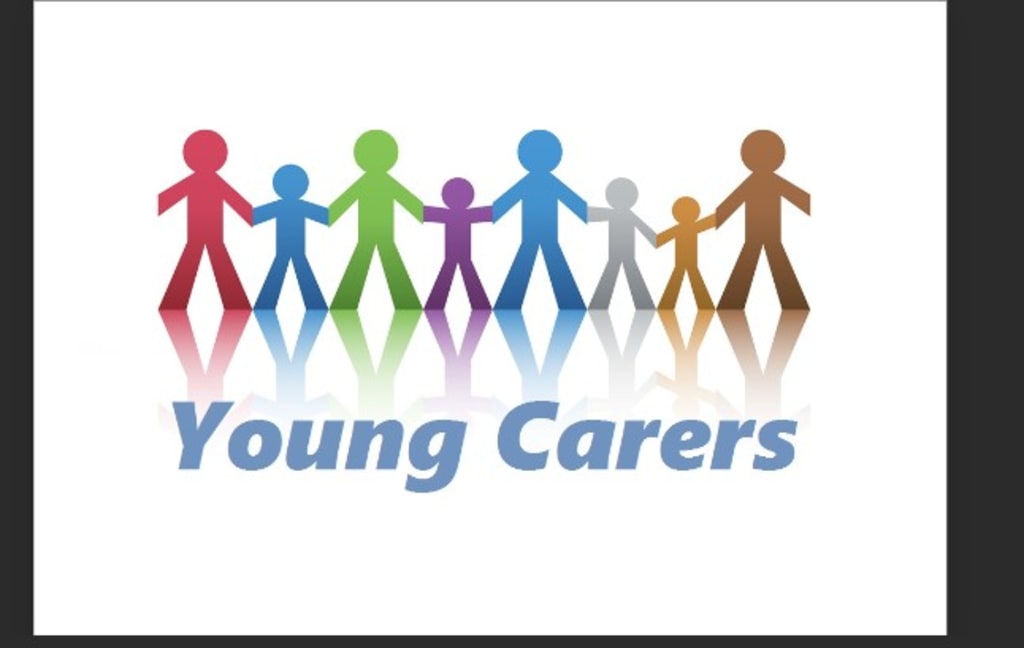The Impact of Being a Young Carer on Children and Young People: Mental, Emotional, and Educational Considerations
YOUNG CARES PLIGHT

Introduction
Being a young carer can have significant implications for the mental, emotional, and educational well-being of children and young people. Young carers are individuals under the age of 18 who take on substantial caring responsibilities for a family member who has a physical or mental illness, disability, or substance abuse issue. While their contributions are commendable, the challenges they face can have a profound impact on their overall development. This article explores the effects of being a young carer on the mental, emotional, and educational aspects of their lives.
1. Mental Impact:
a. Stress and Anxiety: Young carers often experience heightened levels of stress and anxiety due to the demands of their caregiving responsibilities. They may constantly worry about their family member's well-being, juggling multiple roles, and managing household tasks alongside their education.
b. Depression and Isolation: The isolation resulting from the responsibilities of being a young carer can contribute to feelings of loneliness and depression. The lack of time for social activities and limited opportunities to engage with peers may lead to a sense of detachment from their age group.
c. Burnout: The pressure of balancing caregiving with other responsibilities can lead to burnout in young carers. Exhaustion, sleep disturbances, and a sense of being overwhelmed may affect their ability to cope with daily challenges and impact their overall mental well-being.
2. Emotional Impact:
a. Emotional Stress: Young carers often experience emotional stress as they witness the physical and emotional struggles of their family member. This exposure to challenging situations and potential loss can lead to heightened emotions, such as sadness, guilt, or anger.
b. Suppressed Emotions: Due to the focus on their caregiving role, young carers may suppress their emotions and neglect their own needs. This can lead to emotional bottling up, affecting their ability to express and process emotions effectively.
c. Self-esteem and Identity: Young carers may struggle with issues of self-esteem and personal identity. The weight of their responsibilities and the impact on their social lives and educational achievements can sometimes make them feel less capable or different from their peers.
3. Educational Impact:
a. Academic Performance: The demanding nature of caregiving responsibilities can have a direct impact on young carers' academic performance. Frequent absences, difficulty concentrating, and lack of time for homework and revision may lead to lower grades and reduced educational opportunities.
b. Disrupted Education: In some case children and young people turn up to school tired and unable to function. It is as if they must grow up before their time, during the covid 19 pandemic children had to stay in isolation after their peers return to school because that had a vulnerable adult to care for at home. Young carers may face interruptions in their education due to their caregiving responsibilities. The need to attend medical appointments or provide constant care may result in irregular school attendance or a need for alternative education arrangements.
c. Limited Aspirations: The additional responsibilities and challenges young carers face may limit their ability to explore and pursue their career aspirations. Lack of time, resources, and support can dampen their motivation and hinder their long-term educational goals.
Conclusion:
Being a young carer can have a profound impact on children and young people, affecting their mental, emotional, and educational well-being. It is crucial to recognise the unique challenges they face and provide appropriate support systems. Schools, healthcare professionals, and community organisations can play a vital role in identifying young carers and offering tailored assistance, such as counselling services, peer support groups, and flexible educational arrangements. By addressing the specific needs of young carers, we can help them thrive academically, emotionally, and socially, ensuring they have a brighter future while fulfilling their caregiving responsibilities.





Comments
There are no comments for this story
Be the first to respond and start the conversation.